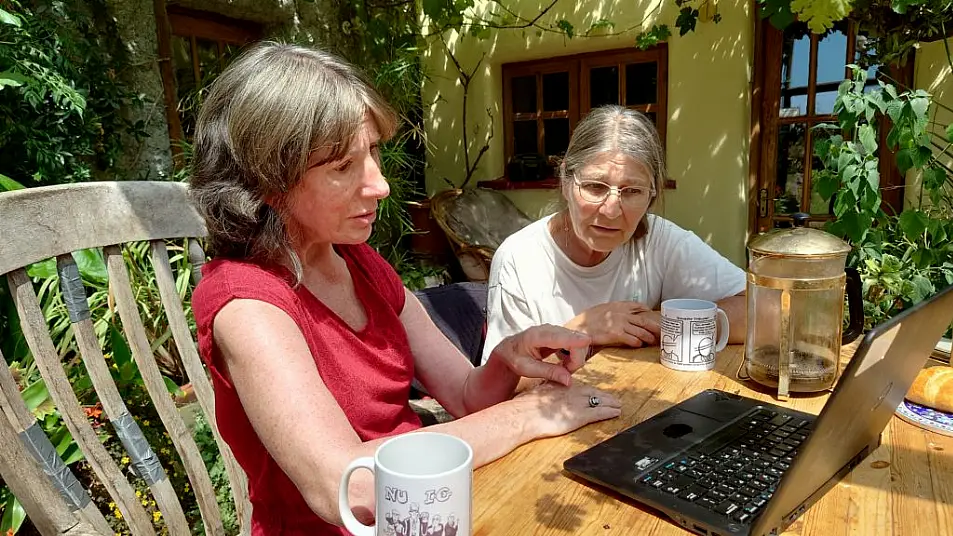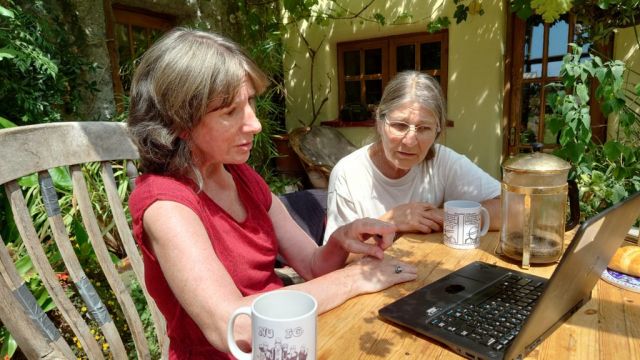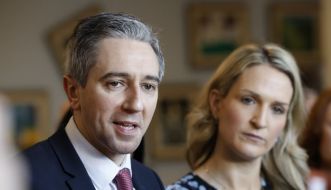Dr Micheline Sheehy Skeffington's fight against gender discrimination in Irish academia was long and difficult, and now she's finally telling her full story.
Dr Sheehy Skeffington, a pioneering feminist, plant ecologist, and activist, won her gender inequality case against the University of Galway in 2014.
Dr Sheehy Skeffington is the granddaughter of famous Irish suffragette Hanna Sheehy Skeffington, and Francis Sheehy Skeffington, an Irish writer and radical activist
The historic gender discrimination case for lack of promotion marked the first successful win of its kind in Ireland or the UK.
In 2008, 46 people from the university (then called NUI Galway) applied for promotion to senior lectureship positions. Twenty-three men and seven women were shortlisted for interview, of whom Dr Sheehy Skeffington was one.
Sixteen men and one woman were promoted at the conclusion of the process in 2009. Dr Sheehy Skeffington had been unsuccessful for the fourth time, and later that year she took her gender discrimination case.
The Equality Tribunal ruled in November 2014 she had been discriminated against on the basis of gender and should be promoted to senior lecturer.
She tells her story in a new book, written with journalist Rose Foley, Micheline’s Three Conditions: How We Fought Gender Inequality at Galway’s University and Won.
Rose Foley is a writer and editor with a career spanning both US and Irish newspapers, including The Boston Globe, where she helped edit the 2003 Pulitzer Prize-winning series on the Catholic Church sex abuse scandal.
The book's title refers to a campaign launched after Dr Sheehy Skeffington's case, when she donated her €70,000 award to five other women who had also been passed over in the promotion round, thus kickstarting the ‘Micheline’s Three Conditions Campaign’.
The campaign started when previous university president Jim Browne claimed to RTÉ education reporter Emma O’Kelly that Micheline Sheehy Skeffington was on his new Gender Equality Task Force. She was not, but outlined three conditions.

They were: 1) That NUI Galway promotes the five other women who, along with Dr Sheehy Skeffington, were interviewed, deemed suitable, but not promoted in 2009. 2) That NUI Galway puts right the subsequent promotion round to Senior Lecturer in 2014 in a way which ensures gender balance among the successful candidates. 3)That NUI Galway starts to address the issue of gender imbalance in senior posts by adopting a policy of promoting the same percentage of women from each level as the percentage of women at that level.
In 2016, NUIG adopted the policy, and four of the women who took High Court cases settled them in 2018.
Dr Sheehy Skeffington and Ms Foley spoke to BreakingNews.ie about the campaign, and the new book, which they hope will inspire others who face gender discrimination in the workplace.
The book took five years to finish, Ms Foley said. "I don't think either of us thought it would take that long, but we're both proud of what we've come up with."
Rose @rosefolio and me receiving delivery of the books!!! 😊😁 We hope to be selling this weekend. Watch this space! 🧐 pic.twitter.com/cL7HUIMKPG
— Micheline Sheehy Skeffington (@MichelineShSk) October 12, 2023
Advertisement
Looking back at the case, Dr Sheehy Skeffington said: "I found only one person of 17 promoted was a woman. I thought then 'hang on, this isn't just about me'. I knew it was a wider injustice."
On her family history, she said: "I come from a long line of jailbirds and troublemakers. My grandparents were very strong on feminism. Hanna Sheehy-Skeffington was a suffragette who went to prison and on hunger strikes for the cause.
"I felt I owed it to her, and my sense was that both my grandparents and parents would have been asking 'why aren't you doing something about this?'
"I felt encouragement from the family even though they're no longer alive, obviously. When I took the case I thought, 'even if I don't win it might make headlines', you know 'suffragette's granddaughter takes case against university'."
Dr Sheehy Skeffington added: "I got the redacted application forms and realised there were five other women like me who hadn't been promoted. Both them and I were better than a lot of the successful candidates. Some of the men promoted didn't even meet the guidelines... at the Equality Tribunal the university's argument was 'they're just guidelines, we don't have to adhere to those'."
She feels there is still not enough transparency when it comes to the criteria for university promotions, but "hopefully we've shaken it up a bit".
Ms Foley interviewed more than 40 people for the book, transcribing around 26 hours of recordings.
She explained: "I wondered how I could fit so much information and detail into the book. It was a painstaking process, but I think we succeeded in making something that tells the truth about what happened, and tells it in an engaging way. It's not written in an academic style, it's written more like a conversation talking to a friend."
The equality officer who made the final judgement in the case was among those interviewed for the book.
Dr Sheehy Skeffington said people have reached out to her for advice since the ruling, and in the years since the campaign was launched.
Ms Foley said: "I've worked in papers for 20-odd years. Contacts in the US and Canada, when I discuss the book, women will often tell me they've had similar experiences. This is not an isolated case when it comes to women being unfairly treated.
"That's why the fact Micheline won can be inspiring to people. She was the first person in academia to prove this. We believe NUIG intended to appeal the decision, but after Micheline went public with it... they didn't.
"Micheline went on to conduct this campaign for five other women who should have been promoted.
"They told me what it was like to be bullied really, to work in an institution where your work wasn't valued because you were a woman.
"We hope it inspires others to fight back in the same way and that you can win even when the odds are against you."

Dr Sheehy Skeffington praised the work of her co-author, highlighting the importance of journalism in the campaign.
"My grandfather was a journalist, so I've always appreciated how important it is to get things in the public eye, how important it is to report things.
"When my grandmother was involved in the suffrage movement, he found he wanted to write several articles per day, so he set up The Irish Citizen with James Cousins and that was the suffrage newspaper.
"I should also credit my partner Nick Scott. He has been in the background the whole time. He had a great strategic drive, without that I don't think we would have done so well."
Dr Sheehy Skeffington praised Galway students who got behind the cause, adding that plenty of colleagues were, although some were reluctant to support it publicly.
While the process was difficult at times, she has no doubt it has been worthwhile and resulted in real change.
"At one point I had said something about the university's academic council being 85 per cent men, and they came back and said 'Dr Sheehy-Skeffington is wrong, it's not 85 per cent, it's 81 per cent'. We used that as a banner for the next demo!
"The five women were not interviewed for the book as they were legally advised not to. There were times we were tearing our hair out, wondering where it was going. The college was weaving around and trying to postpone things.
¡Our book is now on sale postage free on our website!https://t.co/hNM567qnVt pic.twitter.com/XPoiXW1WPn
— Micheline Sheehy Skeffington (@MichelineShSk) October 15, 2023
"There's lots more to do... but there has been a real change."
Ms Foley said the campaign has "created a sea change in gender equality in Irish education".
"Gender balance is required in key decision-making bodies now. Just four years ago, there had never been a female president at an Irish university. Currently, there are seven of the 12 Irish universities led by women. I think that alone shows you the difference in how women are now looked at in Irish higher education."
Micheline’s Three Conditions: How We Fought Gender Inequality at Galway’s University and Won, is available to order here.







